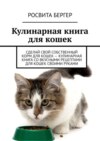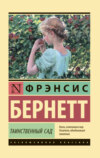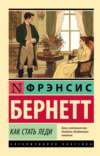Loe raamatut: «A Little Princess / Маленькая принцесса. А1»
© Смирнова А. И., 2024
© ООО Издательство АСТ, 2024
Before-Reading Questions:
1. What character traits do you think can help a person get through the dark times of their lives?
2. Reflecting on the title “Little Princess,” what do you think defines true nobility and royalty?
3. What initial impressions do you have of the main character, Sara Crewe, based on the title and cover of the book?
Chapter 1
Sara
It was a dark winter's day in London. A yellow, thick fog hung over the streets. A cab was driving slowly. In that cab, an odd-looking little girl sat with her father.
The girl was looking out of the window at the people with a strange thoughtfulness in her big eyes. Such look was unusual for such a small child. In fact, Sara Crewe was only seven. And she could not remember any time she was not thinking about grown-ups and the world around her. She felt much older than she actually was.
“Papa,” she said in a low, mysterious little voice, “papa.”
“What is it, darling?” Captain Crewe answered and looked down into her face. “What is Sara thinking of?”
“Is this the place?” Sara whispered and moved closer to him. “Is it, papa?”
“Yes, little Sara, it is. Here we are at last.” She was only seven years old, but she knew that he felt sad when he said it.
She was born in India, and “the place,” as she always called it, was a boarding school in England. She saw other children being sent there. She saw their parents get letters from them. And she knew that one day she will go there, too.
She never knew her mother, because she died when Sara was born. Her only family in the world was her father. A young, good-looking, rich man. He loved his daughter very much and did everything for her. And Sara was very sad that her father could not stay with her in the school.
“Couldn't you go to that place with me, papa?” she asked when she was five years old. “Couldn't you go to school, too? I would help you with your lessons.”
“But you will not have to stay for a very long time, little Sara,” he used to answer her. “You will go to a nice house where there will be a lot of little girls, and you will play together. I will send you many books, and you will grow so fast that it will seem less than a year before you are big enough and can take care of papa.”
They got out of the cabin and saw a row of big, boring, brick houses. One of the houses had a plate that said:
MISS MINCHIN,
Select Seminary for Young Ladies.
They came to the door and rang the bell. The door opened and they entered a well-furnished but quiet ugly room. Just right then Miss Minchin entered the room. She was very like her house, Sara felt:tall and boring, and respectable and ugly. She smiled, but her smile was cold.
“It will be a great privilege to have charge of such a beautiful and promising child, Captain Crewe,” she said, as she said to each papa and mamma who brought a child to her school.
“Just make sure she doesn't spend too much time with books. Make her ride her pony or go out and buy a new doll. She should play more with dolls.”
He explained to Miss Minchin that his lawyer Mr. Barrow would pay for everything. He would write to Sara twice a week. The last rule was simple toɔ:Sara gets anything she wants.
When he left, Sara was sitting on the floor of her sitting room. Not every girl at the school had her own room, but Sara did. When Miss Minchin sent her sister, Miss Amelia, to see what the child was doing, she found the door locked.
“What a weird child!” she said to her sister when she went downstairs again.
“She is a spoiled child, that's for sure,” answered Miss Minchin. “Sitting in her room in her ridiculously expensive clothes. Her father treats her like a little princess. Well, she will look like a princess at the head of the line when we take the schoolchildren to church on Sunday.”
Glossary
aɡain [ǝ'ɡen] – adv опять; вновь
answer ['a:nsǝ] – n ответ; v отвечать
ask [a:sk] – v спрашивать; просить
brinɡ (brouɡht, brouɡht) [brɪŋ] – v приносить; приводить
cab ['kkb] – n такси
come (came, come) [kʌm] – v приходить
downstairs [daun'steǝz] – adv вниз
enouɡh [ɪ'nʌf] – adv достаточно
enter ['entǝ] – v входить
explain [ɪk'spleɪn] – v объяснять
feel (felt, felt) [fi:l] – v чувствовать, ощущать
ɡo (went, ɡone) [ɡǝu] – v идти; ходить; становиться
lock [lɒk] – n замо́к; v запирать на замок; закрывать
lonɡ [lɒŋ] – adj длинный; долгий
odd [ɒd] – adj странный
parent ['peǝr(ǝ)nt] – n родитель
place [pleɪs] – n место; v помещать
remember [rɪ'membǝ] – v вспоминать, запоминать, помнить
rich [rɪʧ] – adj богатый
ride (rode, ridden) [raɪd] – v ездить (верхом); кататься; скользить; мчаться
school [sku:l] – n школа
seem [si:m] – v казаться
send (sent, sent) [send] – v посылать; отправлять
sit (sat, sat) [sɪt] – v садиться, сесть
slowly ['slǝuli] – adv медленно
sure ['ʃuǝ] – adj уверенный, убеждённый
thick [θɪk] – adj толстый; густой; тяжёлый
thouɡhtfulness ['θɔ:tfulnɪs] – n задумчивость; внимательность
uɡly ['ʌɡli] – adj некрасивый, уродливый, безобразный
whisper ['wɪspǝ] – n шёпот; v шептать
write (wrote, written) [raɪt] – v писать
Chapter 2
A French Lesson
When Sara entered the schoolroom the next morning, everybody looked at her with wide, interested eyes. Everyone in the school knew she was the new show pupil of Miss Minchin. One or two of the pupils also saw her French maid, Mariette. Mariette arrived the evening before Sara.
“I saw her maid,” said Lavinia, the thirteen years old girl, to her friend Jessie. “She was opening a box full of rich clothes. She has silk stockings on!”
“And what little feet! I never saw such little feet,” answered Jessie. “Her eyes are such an unusual green color. She's not prettylike other girls. But she makes you want to look at her.”
Sara was sitting quietly in her seat near Miss Minchin's desk. She looked back quietly at the children who looked at her. She wondered what they were thinking of.
“Young ladies,” she said, “I wish to introduce you to your new companion.” All the little girls stood up, and Sara rose also. “She just came to us from far away-in fact, from India. As soon as lessons are over you must make each other's acquaintance.”
The pupils bowed ceremoniously and then they sat down.
“Sara,” said Miss Minchin in her teacher manner, “come here to me.”
Sara went to her politely.
“As your papa hired a French maid for you,” she began, “I believe that he wants you to learn French.”
“I think he hired her,” Sara said awkwardly, “because he-he thought I would like her, Miss Minchin.”
“I believe you always think that things are done because you like them,” said Miss Minchin, with a slightly sour smile. “My impression is that your papa wished you to learn French.”
If Sara wasn't so shy she would explain everything immediately. The fact was that her mother was French, and Captain Crewe loved her language. So it happened that Sara always heard it and was familiar with it.
“The French master, Monsieur Dufarge, will be here in a few minutes,” said Miss Minchin with polite tartness. “Take this book and look at it until he arrives.”
Sara's cheeks felt warm. She went back to her seat and opened the book.
Monsieur Dufarge arrived very shortly afterward. He was a very nice, intelligent, middle-aged Frenchman.
“Is this a new pupil for me, madame?” he said to Miss Minchin. “I hope that is my good fortune.”
“Her papa-Captain Crewe-believes very strongly that she should learn the language. But I am afraid she does not want to learn,” said Miss Minchin.
Little Sara stood up. She felt rather unhappy, as if she were almost in disgrace. She looked up into Monsieur Dufarge's face with her big, green-gray eyes. She began to explain herself quite simply in pretty and fluent French. She explained she did not learn French exactly-not out of books-but her papa and other people always spoke it to her. Monsieur Dufarge began to smile.
“Ah, madame,” he said, “there is not much I can teach her. She did not learn French; she is French. Her accent is perfect.”
Miss Minchin felt mortified.
“Why didn't you tell me?” exclaimed Miss Minchin and turned to Sara.
“I–I tried,” said Sara.
Miss Minchin knew she tried, and that it was not her fault that she was not allowed to explain. She heard Lavinia and Jessie giggling.
“Silence, young ladies!” she said severely.
And she began from that minute to feel rather a grudge against her show pupil.
Glossary
awkwardly ['ɔ:kwǝdli] – adv неуклюже, неловко
beɡin (beɡan, beɡun) [bɪ'ɡɪn] – v начинать
believe [bɪ'li:v] – v верить; думать, полагать
box [bɒks] – n коробка, ящик
clothes [kləʊðz] – n одежда
familiar [fǝ'mɪliǝ] – adj обычный, привычный; знакомый
feet [fi:t] – n pl ноги, стопы
fortune ['fɔ:ʧu:n] – n удача, счастье; судьба; состояние, богатство; наследство
ɡreen [ɡri:n] – adj зелёный
happen ['hhpǝn] – v случаться; происходить
hear (heard, heard) [hɪǝ] – v слышать
hope [hǝup] – n надежда; v надеяться
immediate [ɪ'mi:diǝt] – adj немедленный, незамедлительный; мгновенный; непосредственный
interest ['ɪntrǝst] – n интерес; v интересовать
lanɡuaɡe ['llŋɡwɪʤ] – n язык; речь
learn (learnt, learnt) (learned) [lɜ:n] – v изучать; учить, учиться, узнавать
lesson ['les(ǝ)n] – n урок, занятие
like [laɪk] – v нравиться; любить; adj подобный, похожий
maid [meɪd] – n служанка
make (made, made) [meɪk] – v делать
nice [naɪs] – adj приятный, милый; хороший
perfect ['pɜ:fɪkt] – adj совершенный; идеальный; v совершенствовать
polite [pǝ'laɪt] – adj вежливый, учтивый, воспитанный
pretty ['prɪti] – adj красивый, хорошенький; красивый; adv довольно
quite [kwaɪt] – adv совсем, вполне
rise (rose, risen) [raɪz] – v поднимать(ся); в(о)сходить
see (saw, seen) [si:] – v смотреть, видеть; посмотреть
shy [ʃaɪ] – adj застенчивый; робкий, пугливый; v отпрянуть
smile [smaɪl] – n улыбка; v улыбаться
take (took, taken) [teɪk] – v брать, взять; занимать времени, требоваться; вести кого-л. куда-л.
tell (told, told) [tel] – v рассказывать; сообщать; говорить
warm [wɔ:m] – adj тёплый; v греть; согревать(ся)
wish [wɪʃ] – n желание; v желать
Tasuta katkend on lõppenud.



























